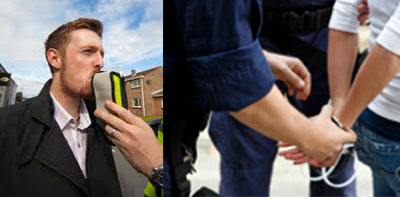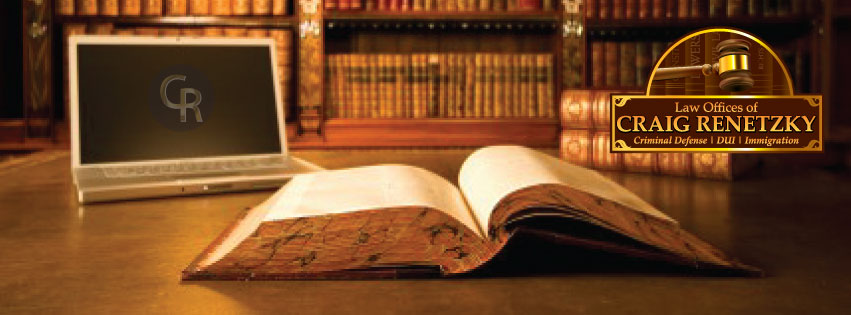Drunk driving charges are taken very seriously in California – if you get a DUI, it is imperative to enlist the expertise of an aggressive and qualified attorney who understands the law in California. Many people charged with DUI do not realize what their rights are – for instance, did the police officer who cited you have probable cause to pull you over in the first place? If there was no probable cause, evidence collected against you will be inadmissible in court and your case may be dismissed. These questions are why you need an attorney who is determined to examine detail of your arrest. I will enable you to protect your driver’s license and your future.

Most people arrested for a California DUI charge assume the evidence against them is insurmountable.
Most of them are wrong.
Fighting a DUI case almost always makes more sense than simply pleading guilty. For example, did you know that…
- More than 100 interfering substances, medical conditions and equipment malfunctions can cause DUI breathalyzers to generate falsely high readings?
- DUI blood testing is prone to error. When we re-test clients’ blood samples at independent laboratories, we frequently get different results…and sometimes find that the original sample was contaminated?
- Police officers are supposed to follow a standardized set of procedures in DUI roadside investigations…and very few of them do?
Now, we will discuss California DUIs from arrest through court…
A DUI Arrest
Most California DUI arrests begin with a traffic stop or a checkpoint. The officer asks you to perform a series of field sobriety tests and to blow twice into a handheld breathalyzer. After arrest, the cop usually will ask you to take a blood or breath test at the police station, jail or hospital (you’re required by law to take this test…refusing the chemical test may result in tougher California DUI penalties and a one-year drivers license suspension).
For most misdemeanor DUI arrests, the police will release you within a few hours of arrest and booking (but for a felony DUI or accident case, you may have to post bail). Upon release you should be given two documents: a citation to appear in court, and a pink temporary license. The cops will usually take your California drivers license and mail it to the DMV. If you’re from out of state and get a California DUI, the police here can’t take your physical license.
The DMV Process
You must contact the DMV within 10 days of your arrest to demand a hearing. Otherwise you forfeit your right to a hearing and your license automatically goes into suspension after 30 days. If you hire a California DUI lawyer, he/she can request the hearing for you. It’s usually better that way, because your lawyer can often schedule the hearing further out (thus getting more time to prepare) and he/she can sometimes influence what DMV hearing officer gets assigned to the case.
Generally your California DUI attorney conducts the hearing on your behalf. You may or may not be asked to attend. Your lawyer’s primary objectively is to convince the DMV not to suspend your drivers license. But your lawyer may also use the DMV hearing as an opportunity to gather evidence that may prove useful in court.
For example, we can subpoena the breathalyzer’s maintenance and calibration logs, often revealing a history of malfunctions and inaccurate readings. We can also subpoena the arresting officer to testify at the DMV hearing…and illicit testimony about poor DUI training and mistakes in the investigation.
At the conslusion of the hearing, the DMV’s hearing officer takes the matter into consideration and later issues written findings. The decision usually gets mailed out in one to 30 days. If the DMV finds in your favor, no license suspension is imposed (though a DUI conviction in court could trigger a separate suspension). If the DMV finds against you, your license goes into suspension within a few days of receiving notice.
Note: DMV hearings only occur for DUI of alcohol arrests (to determine if you drove with a .08 or higher BAC, or any positive BAC level in the case of an underage DUI). If you got arrested for a California DUI of drugs charge–including DUI of marijuana,DUI of Vicodin or DUI of Ambien–there is no DMV hearing. But if you get convicted of any of these charges in court, the court conviction will trigger a drivers license suspension.
If Your License Gets Suspended
If your drivers license is suspended, you can usually get a restricted license within 30 days. This allows you to drive to and from work related activities and any court or DMV imposed alcohol program. Sometimes we can make arrangements to get you a restricted license right away. But you must heed the suspension while it’s in effect. Driving in California with a suspended license is a crime and can lead to jail time, a probation violation and a longer license suspension.
DUI Court Proceedings
Most people whose BAC exceeds .08 get charged with two misdemeanor crimes: DUI under Vehicle Code 23152(a) and Driving with Excessive BAC under Vehicle Code 23152(b). Your objective is to avoid conviction for either of these offenses.
Your California DUI attorney most likely can attend all the DUI court proceedings on your behalf…unless there’s a hearing where you have to testify, or the case goes to trial. Most DUI cases may involve several court dates, and can span over several months. During this time, you DUI attorney collects evidence, runs motions, and negotiates with the judge and prosecutor seeking a dismissal or a reduction in the charges.
If a settlement is reached involving you pleading to a DUI or a lesser charge, this can be completed one of two ways. You may come to court and plead in person before the judge. Or in many cases, your California DUI lawyer can have you sign notarized documents (called a Thal waiver) outside of court. You attorney can then brings the documents to court and execute the plea on your behalf.
If no settlement can be reached, the DUI case ultimately will get set for jury trial. Prosecutors and judges often give better deals after a case gets set for trial…as there may be more trials on the docket than courtrooms available to accommodate them. Also, problems in the state’s evidence become more apparent when a trial D.A. finally takes a hard look at the case.
